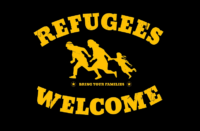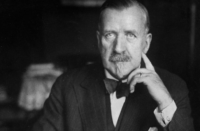The Communist Party of Ireland was not long formed when it had to grapple with the creation of the Irish Free State by British imperialism. The party was the first to recognise the class nature of the Treaty, and believed that the republicans could win, but only if they adopted a social programme that brought the working class into the leadership of the anti-imperialist struggle.
The CPI was at this time a very young and quite inexperienced party, and it had to grapple with the realities of neo-colonialism decades before the communist movement began to appreciate this particular form of imperialism. It’s not surprising, then, that the party was not always consistent; but we have to take into account the actual concrete conditions and context that Irish communists operated in at the time.
It was hoped that the remnants of the Irish Citizen Army could be won over to the CPI; but when this failed, the CPI formed its own military formation, which engaged in drilling and arms training. The labour movement at the time took a critical pro-Free State position, which earned the Labour Party much condemnation from the CPI.
Throughout the Civil War period the CPI looked after its members who were imprisoned in Free State prisons, with members conducting agitation work within the prisons.
Organising the unemployed was a crucial task for the party before the outbreak of war; but with the shelling of the Four Courts the Free State resorted to putting down dissent through all sorts of White Guard terror, with the Special Infantry Corps being formed in the Free State army as a special unit for putting down strikes and land seizures.
Obviously, party work in the Civil War period was not open, and to a degree the party was in a state of semi-legal, clandestine activity, with its paper printed in London and news of the Civil War, particularly the executions of republicans, being censored by the state.
To the degree that the CPI had an armed section, this never became an independent force. Party members were instructed to carry on with their IRA duties. Seán McLoughlin was commandant of a flying column in Co. Limerick while he held the post of director of organisation of the CPI.
Peadar O’Donnell, a member of the Army Council, was the most senior figure in the IRA won over to the CPI—a great coup for the new party. His influence was crucial on Liam Mellows, who wrote his famous Notes from Mountjoy in prison, which called for the republicans to take up the social programme drafted by Irish communists.
The party was clear that the Civil War had brought out the class contradictions of the national movement, that, contrary to sentimental feelings, there was little “betrayal”: the Free State was the Irish gombeen class working as they always have done. McLoughlin wrote an article about how the republicans could win the military struggle, which concluded with: “Republicans, here is your chance. With the workers behind you, the Free State relapses into the black hell from whence it came.”
The Communist International was the body that co-ordinated communist parties internationally at the time. In July 1922 it issued a statement “To the Workers of Ireland,” which endorsed the CPI position and made it the policy of the international communist movement:
It is only the young Communist Party of Ireland which has the courage and determination to point the right path and say:-“It is only after the yoke of the English imperialists has been shaken off that the struggle against the Irish exploiters will have any chance of success! It is only after the establishment of real independence that the class struggle will be able to develop untrammelled by any National Question.”
The party presented its programme to Liam Lynch, chief of staff of the IRA; but, while sympathetic, he did not appreciate the necessity of the social programme.
The Free State didn’t have the same reluctance to understand their class interests: they ruthlessly upheld “law and order,” with striking postal workers, dockers and workers occupying their work-places all being attacked by the military of the new state. Because of its agitation on social and economic questions, and its linking of those questions to the struggle to secure real national independence, the Free State minister for defence, Richard Mulcahy, received regular reports on the CPI.
It was the failure of the republicans—and the social democrats—to understand the class basis of national freedom that meant that the Republic was crushed under the weight of class-conscious counter-revolution—from the same class that are now presiding over an abysmal housing situation, health services north and south that are similar in their incompetence, and the highest cost of living in the European Union. Two states resulted from the counter-revolution of 1922–23: an Orange statelet in the north and a gombeen state in the south, both dependent on imperialism.
The CPI was not immune from mistakes in this period. In particular, the party had an over-optimistic view of the forces opposed to the Treaty, essentially seeing it as inevitable that they would see the logic of the national struggle as being another form of class war. Many who opposed the Treaty did so out of sentimentalist reasons and would see no contradiction in later supporting Fianna Fáil.
The party also suffered from internal issues, and particularly with a bad relationship with the Communist Party of Great Britain, which had little appreciation for the particular differences that a party operating in the circumstances of neo-colonialism had to deal with. In some ways the CPI was years ahead of the communist movement on this question. As a sign of where it saw itself, the communist party that the CPI developed most relations with, after the Soviet and British parties, was the Communist Party of India.
The Labour Party was criticised for its negative role in supporting the Free State, with the CPI being ahead of the economistic view that puts all the blame mechanically on the IRA for not being more socialist. Paddy Gaffney from Carlow broke from the Labour Party and joined the CPI and became the party’s first TD. Anchorella Barbara Finch White, a British communist, became the political leader of the party for a time, being the first woman to head an Irish political party.
One weakness of the CPI was its neglecting of Belfast, which in the civil war period had almost no Communist Party presence. We were not alone in not seeing partition as the most permanent aspect of the Treaty.






